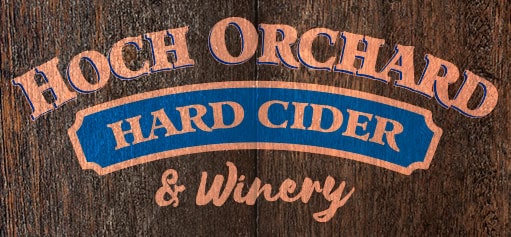The trainee will arrive in April and will be involved in all aspects of harvest, production, and marketing. We have a very diversified farm. Trainees will have the opportunity to work with many types of temperate zone fruit. The full growing season will be experienced in this program.
Spring work and planting preparation will start the program. Orchard and berry planting followed by nursery planting will be the primary focus in the spring months. Soil nutrition and pest control will be part of the student’s responsibilities starting in late spring and continuing through the summer and into fall harvest. The berry plantings are maintained with a very low-input system utilizing poultry and horticultural practices to minimize insect and disease problems. However, our apple production system is very intensive using state of the art weather monitoring and pest monitoring systems. We also download weather data and use computer modeling to time our application of insecticides and fungicides.
Integrated Pest Management (IPM) is key in our post control strategy. Pest populations are monitored on a weekly schedule using pheromone baited traps and other attractants. Predetermined pest threshold levels and accumulation of heat units (degree-day modeling) are instrumental in timing our pesticide applications. If the student has a strong interest in this area, he/she will have the opportunity to be involved in taking pest counts and recording pest levels and making pest control decisions.
In late summer and early fall, most learning opportunity will be in harvest, packing, grading, storage, marketing, and delivery of fruit. Given the diversity of marketing that we do here, the trainee has the option to focus more in his/her area of interest. We can give the trainee the opportunity to work with farmer’s markets, wholesale packing and delivery. There is the opportunity for trainees to visit other packing facilities, tour stores and warehouses that buy our fruit, help on the delivery routes and learn about the logistics of fruit storage and delivery, or help with direct marketing at the farmer’s markets.
Training Plan
The trainee will be involved with all aspects of production and harvest. We harvest several crops and the trainees will rarely be expected to work alone or harvest one crop all day for several consecutive days. The trainee will be cross-trained into all areas of production and harvest. We do not have workers hired for one specific task!
The trainee will begin work at our farm in April. Spring work will consist of primarily pruning, field prep, and planting. Summer farm work will include thinning of apples, bud grafting in the nurseries, mowing, tilling, weeding, and berry harvest. September and October will consist of primarily harvesting and packing of apples. November and December will include apple packing along with fall chores of herbicide application, nursery work, and mowing. December work will be more apple packing, pruning, cutting firewood, and miscellaneous indoor repair and maintenance projects.
Chronology of Work
April – Trainee arrives, orientation, clean up of winter prunings, field prep, planting
May – Finish planting, set up pest monitoring traps, weeding, tilling
June – Apple thinning, tilling, weeding, summer pruning, Harvest: strawberries, Fruit processing
July – Apple thinning, tilling, weeding, mowing, herbicide application, grafting, Harvest: strawberries, raspberries, tart cherries, apricots, blackberries, peaches, Fruit processing
August – Farm work: tilling, weeding, mowing, Harvest: blackberries, apricots, cherry plums, plums, summer apples, Fruit processing
September – Farm work: mowing, weeding, Harvest: plums, wine grapes, fall apples, Fruit processing
October – Farm work: mowing, tilling, fall herbicide, Harvest: late apples, Fruit processing
November – Farm work: dig nursery, tilling, fence construction, mulch strawberries, Fruit processing
December – Farm work: repair boxes, pallets, ladders; prune apple trees; cut firewood; Fruit processing

